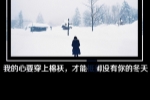
英语作文投诉信开头万能句型【一】
To Whom It May Concern,
I am a student in this university who regularly comes to the library to spend my spare time. Generally speaking, the services you offer here is quite good; however, I have some suggestions for you to adopt.
To begin with, will you please prolong the time for reading? In the daytime, most of the students are having class, so they can’t come to the library. Moreover, some of the books on shelves are out of date. If you are so kind as to provide us some books such as the latest magazines, we will be greatly honored.
I really wish to have a more comfortable library. I would like to extend my greatest appreciation if you are so kind to take my suggestions into consideration. /Thank you for your time and consideration.
Sincerely yours,
Li Ming
英语作文投诉信开头万能句型【二】
Directions:
Suppose you have found something wrong with the electronic dictionary that you bought from an online store the other day. Write an email to the customer service center to
1 make a complaint, and
2 demand a prompt solution.
Dear Sir or Madam,
I bought/ordered an electronic dictionary from your online shop on January 1st, but I found it has some problems after using it for a short period of time.
To begin with, the battery needs recharging after a mere 2 hours of use. This means that I need to carry my charger with me when I go out for a day. In addition, the buttons on the electronic dictionary are so small that it is nearly impossible to type anything with them. Personally, I found this to be completely unacceptable.
Therefore, I would like either to change for another model that works well or a full refund. I am looking forward to your prompt reply.
Yours sincerely,
Li Ming
英语作文投诉信开头万能句型【三】
Directions:
Some international students are coming to your university. Write them an email in the name of the Students’ union to
1 extend your welcome and
2 provide some suggestions for their campus life here.
Dear Friends,
On behalf of the Students’ Union of Beijing Foreign Studies University, I would like to extend our heartfelt welcome to all of the overseas students from all over the world to study in our university.
It is my great pleasure to propose several practical suggestions to you. In the first place, life in this prestigious university perhaps is not as satisfactory as what you expected. You may be tightly bound by continual classes, excessive homework and exams. In the second place, in spite of all these adversities, you will still enjoy your life in this esteemed institution. All types of extracurricular activities such as sports meets, speech contests, different social gatherings and dancing parties provide ample opportunities to make friends.
All in all, although there are a host of pressure, life in our campus is a worthwhile period in your whole lifetime. Wish you enjoy your life here!
Yours sincerely,
Li Ming
英语作文投诉信开头万能句型【四】
(一)改写一般疑问句:
(1)原句中有be动词的,将be动词提前,其他顺序不变。
例如:Thisisacat.变为Isthisacat?
(2)原句中有情态动词的(can/may/shall/would)将情态动词提前,其他顺序不变。例如:Hewouldlikeapie.变为Wouldhelikeapie?
(3)原句中是一般动词的,在句首加助动词do或dose(用于主语是第三人称动词单数的句子),其他顺序不变。例如:Iplaytheguitar.变为Doyouplaytheguitar.
(4)原句中的some变any。
注:以情态动词开头的一般疑问句,并且要求对方做肯定回答的`some不变。
(5)原句中的第一人称改为第二人称。例如:Iamanurse.变为Areyouanurse?
(6)以dose开头的一般疑问句,原来动词的第三人称单数形式要变回原形。例如:Hereadsastorybook.变为Dosehereadastorybook?
(二)改写否定句:
(1)原句中有be动词的,直接在be动词后面加not。例如:Itisadog.→It’snotadog./Itisn’tadog.
(2)原句中有情态动词的,直接在情态动词后加not。
例如:Iwouldlikeahotdog.→Iwouldnotlikeahotdog.
(3)原句中是一般动词的,在一般动词前加don’t或doesn’t(用于主语是第三人称单数的句子),doesn’t后面用原型。例如:Iseethreehamburgers.→Idon’tseethreehamburgers.
原句中的some变any例如:Ihavesomebreadan
dmilk.→Idon’thaveanybreadandmilk.
(4)以let开头的祈使句,如果是letus或letme,直接在其后加not;如果let后面其他人称代词宾格(you、him、her、them、it)就在let后面加助动词don’t。例如:Letusgotothepark.→Letusnotgotothepark.再如:Letthemdohomework.→Don’tletthemdohomework.
(三)对划线部分提问:
对划线部分提问,就是先把一个陈述句的划线部分去掉,然后变为一个特殊疑问句:一是特殊疑问句+一般疑问句;
二是特殊疑问句+陈述句(对主语或主语的定语提问,therebe结构除外)
⑴划线部分是人,用who提问。
⑴划线部分是主语,用who提问,who后面的动词要用第三人称单数形式。如:Whois;Wholikes;Whohas?
方法:who+原句的剩余部分
例如:①HelenandMikearelisteningtomusic.
→Whoislisteningtomusic?
②Ihavesomemodelplanes.
→Whohasanymodelplanes?
⑵划线部分是表语,用who提问。
方法:Who+剩余部分的一般疑问句形式
⑵划线部分是事或者物,用what提问。
方法:what+剩余部分的一般疑问句形式。
注:如果原句是therebe句型,直接用What’s+地点状语来提问。例如:①Wewouldliketobuysomethingsforaparty.
→Whatwouldyouliketobuyforaparty?
②Therearealotofcakesintheplate.
→Whatisintheplate?
⑶划线部分是物主代词或名词所有格,用Whose提问。
方法:⑴划线部分是主语的定语时,Whose+剩余部分
例如:Ourclassroomisbright.
→Whoseclassroomisbright?
⑵划线部分是表语或表语的定语时,Whose+剩余部分的一般疑问句形式例如:①ThewomanisSuYang’steacher.
→Whoseteacheristhewoman?
注:对某部分的定语提问,被修饰的部分跟随特殊疑问句往前提②ThispurseisYangLing’s.
→Whosepurseisthis?
⑷划线部分是地点,用where提问。
方法:where+剩余部分的一般疑问句形式
例如:TheyarehamingaMathslessonintheclassroom..
→WherearetheyhavingaMathslesson?
⑸划线部分是“多少”,用howmany或howmuch提问。
方法:⑴句中是可数名词的用Howmany+剩余部分的一般疑问句形式例如:Therearefifteentreesintheplayground.
→Howmanytreesarethereintheplayground?
⑵句中是不可数名词的用Howmuch+剩余部分的一般疑问句形式例如:Ihaveaglassofjuiceforbreakfast.
→Howmuchjuicedoyouhaveforbreakfast?
⑹划线部分是时间,用when或whattime(具体的几时几分)提问。方法:⑴when+剩余部分的一般疑问句形式
例如:SuYangandSuHaiareathomeonSundaymorning.
→WhenareSuYangandSuHaiathome?
⑵问具体的时间直接用Whattimeisit?或What’sthetime?问
例如:It’sthreeforty-five.
→Whattimeisit?或What’sthetime?











